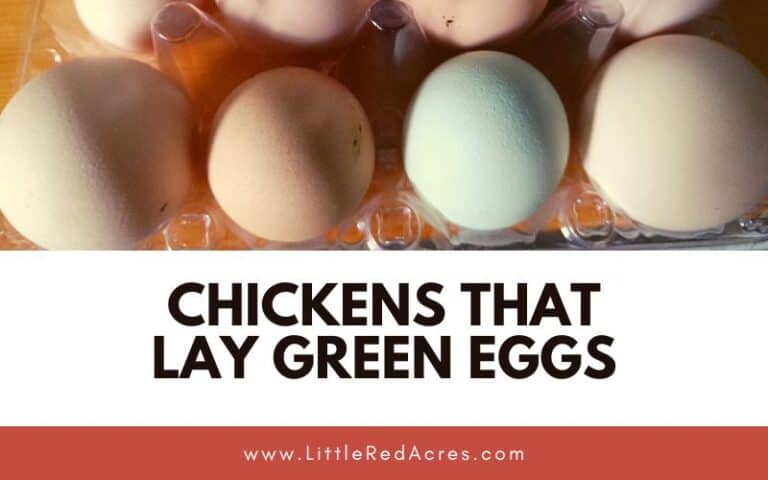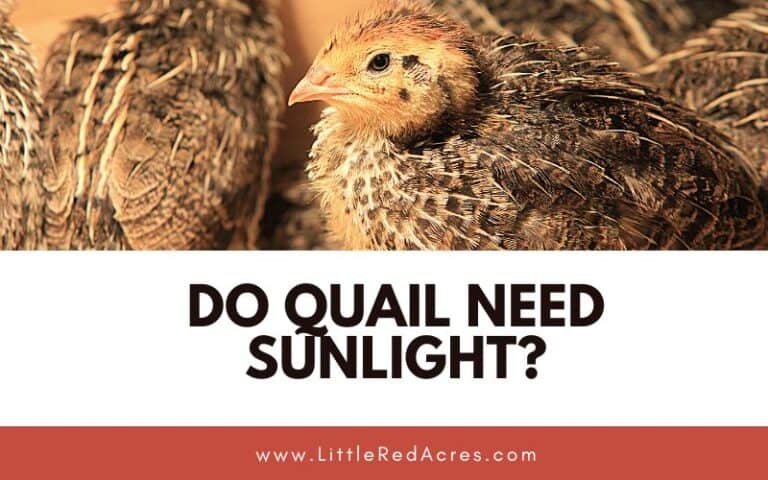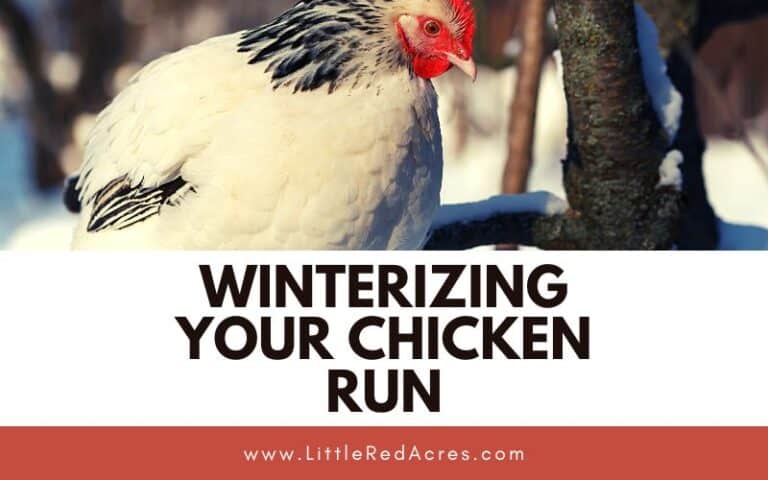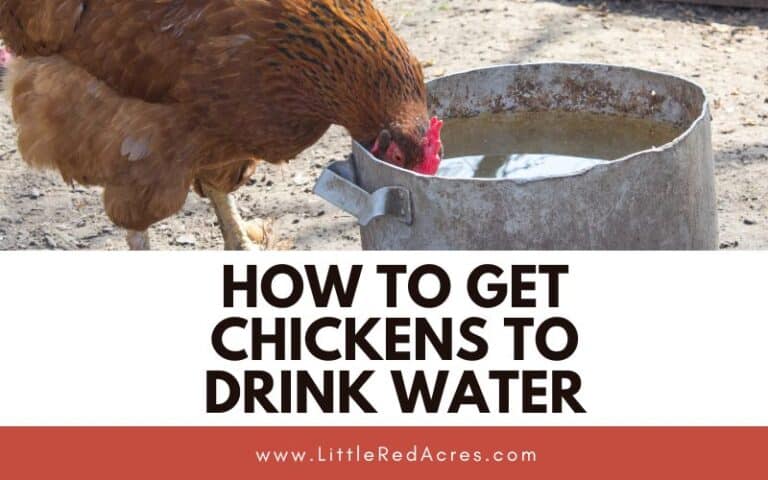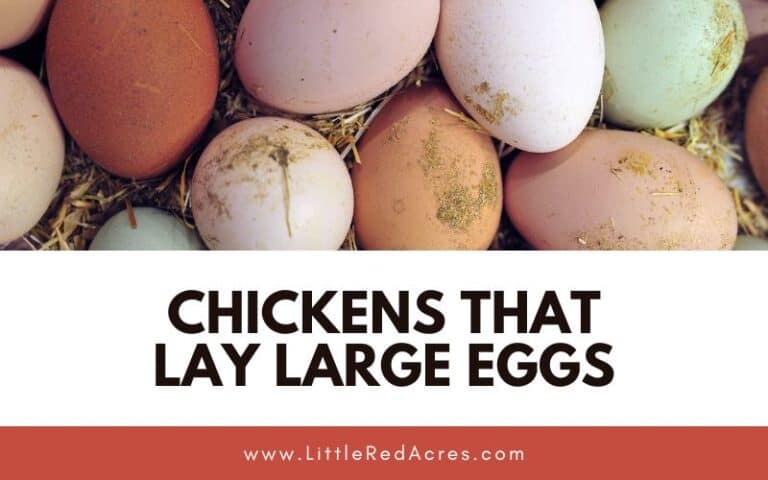Why Your Quail Aren’t Laying Eggs and How to Address It
Inside: Here are the secrets behind why your quail aren't laying eggs. Explore age, environment, nutrition, and health factors for optimal solutions.
The joy of collecting fresh eggs can be unparalleled. A common concern that we all go through is the sudden decline of eggs. If you find yourself pondering the question, “Why are my quail not laying eggs?” you're not alone.
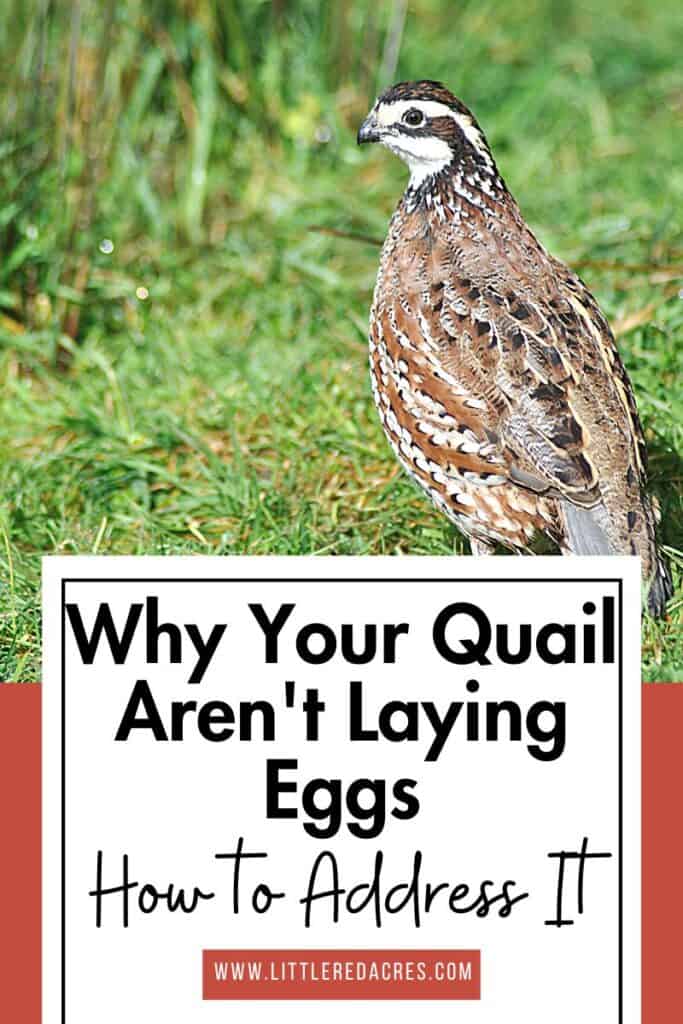
This post may contain affiliate links, see my disclosure policy for more information.
Why Your Quail Aren't Laying Eggs and How to Address It
There is no one right answer when your quail stop laying eggs or even when they slow down. To start, they aren't going to lay an egg every single day. They do lay about 300 eggs a year, so they need a break now and then just like other poultry.
Get updates & freebies delivered to your inbox!
There are some things to keep in mind when you notice that your quail aren't laying as many eggs as “normal” or at all and how you can address them:
Age
One crucial factor influencing a quail's egg-laying capabilities is its age. Quail typically begin laying eggs around 6-8 weeks of age, with peak production occurring between 16 and 24 weeks. If your quail are still too young, patience is key, as they may need more time to reach maturity.
Once they get older, they are going to slow down naturally. You have to decide if you are going to continue caring for them as egg layers or if they are going to become meat for your family.
This ebook will teach you everything you need to know about raising these amazing animals, from feeding and housing to health and care. You’ll learn how to get the most out of your Coturnix quail, and enjoy the many benefits they have to offer.
Genetics
Consider the genetic background of your quail. Different quail breeds exhibit varying levels of productivity.
Some breeds are specifically developed for high egg production, while others may prioritize meat production. Ensure you've chosen a breed that aligns with your goals for egg production.
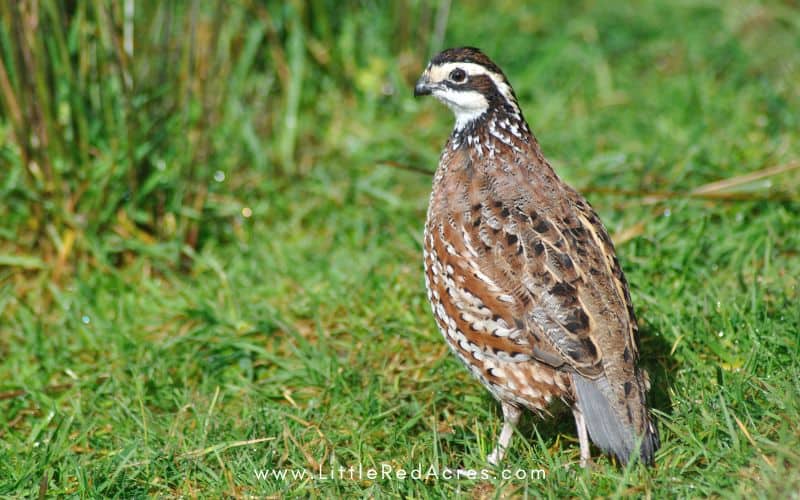
Environmental Factors
Quail are sensitive to their surroundings, and any disruptions or stressors can impact their egg-laying behavior. Factors such as:
Ensure your quail have a comfortable and stress-free environment. Maintain a consistent temperature within their housing, provide proper ventilation, and avoid overcrowding.
Adequate lighting is crucial, as quail require around 14-16 hours of light per day to stimulate egg production. Consider installing artificial lighting if natural light is insufficient, especially during the shorter days of winter.
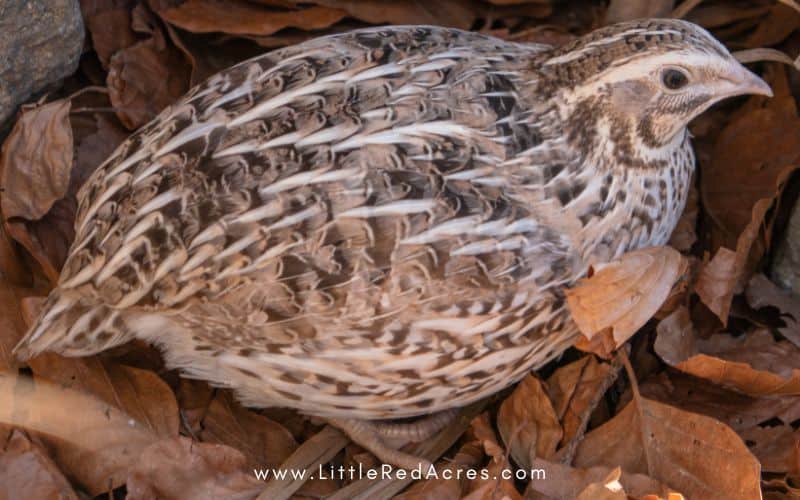
Nutrition and Diet
A well-balanced diet is fundamental for optimal egg production in quail.
A deficiency in essential nutrients such as calcium, phosphorus, and vitamin D can lead to decreased egg-laying. Ensure your quail are receiving a commercial quail feed formulated to meet their nutritional needs.
Calcium is particularly crucial for strong eggshell formation. Provide a separate source of calcium, such as crushed oyster shells, and make it easily accessible to the quail.
Health and Disease
Quail, like any other livestock, are susceptible to diseases that can impact their overall health and reproductive capabilities.
Common ailments such as respiratory infections, parasites, or reproductive disorders can lead to a decline in egg production. Dust bath materials are going to help keep your quail clean and parasite-free!
Regular health checks are essential. Look for signs of illness, and ensure proper sanitation in the quail housing.
Quail Cookbook – These delicious recipes are perfect to get you started on enjoying your quail products, but meat and eggs.
Seasonal Influences
Quail are influenced by natural cycles, and this causes variations in egg production based on the season.
During the colder months, quail may reduce or stop laying altogether. This is a natural response to conserve energy and resources during less favorable conditions.
If you're experiencing decreased egg production in winter, be patient and consider providing supplemental lighting to mimic longer days. This can help stimulate the quail's reproductive hormones and encourage them to lay eggs even during the colder months.
Some quail owner chose to move their quail indoors during the winter months, with additional lighting. This way the birds are not as affected by the cold temperatures or wind that comes with it. I do not bring my birds inside, I accept that they are taking a break during the cold months just like my chickens.
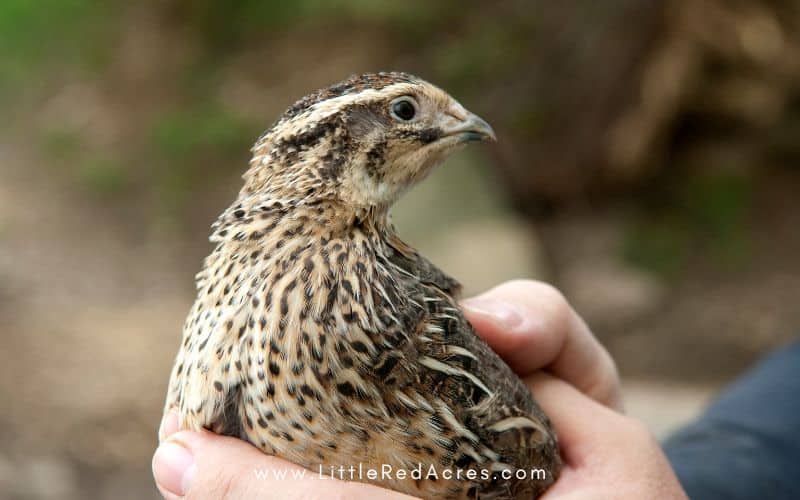
The mystery behind why your quail are not laying eggs may be attributed to a combination of factors. By carefully examining their age, genetics, environment, diet, health, and seasonal influences, you can identify and address the specific issues affecting egg production. Remember, patience and diligence are key when troubleshooting and implementing changes. With proper care and attention, you can create an environment that encourages healthy quail and ensures a steady supply of fresh eggs for your enjoyment.
Frequently Asked Questions
How do you get quail to lay eggs? Quail need 12-14 hours of sunlight per day!
Why are my birds not laying eggs? Quail stop laying eggs for a variety of reasons. Hens may lay fewer eggs due to light, stress, poor nutrition, molt, or age.
Do quail stop laying eggs when they molt? Especially in the first year, quail can have a mini-molt where their feathers are all frazzled and their egg-laying stops. It is not unusual.

Want More?
Different Types of Quail Cages
How and What to Feed Coturnix Quail

